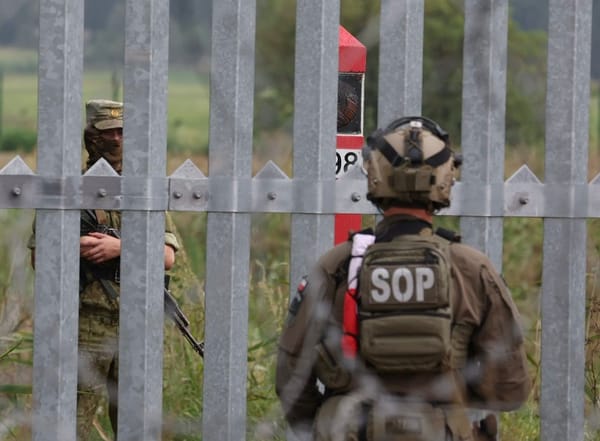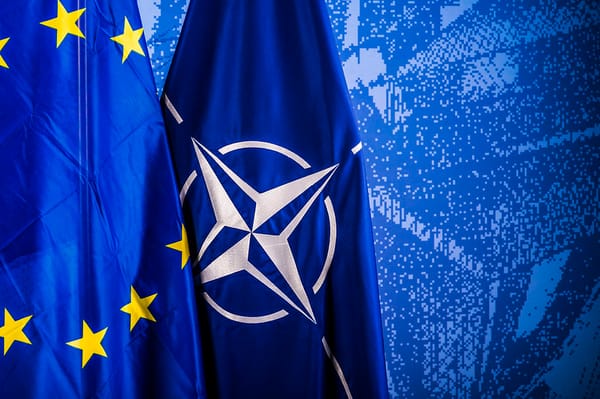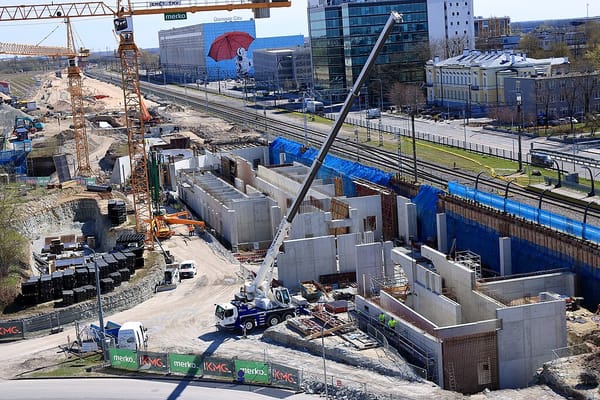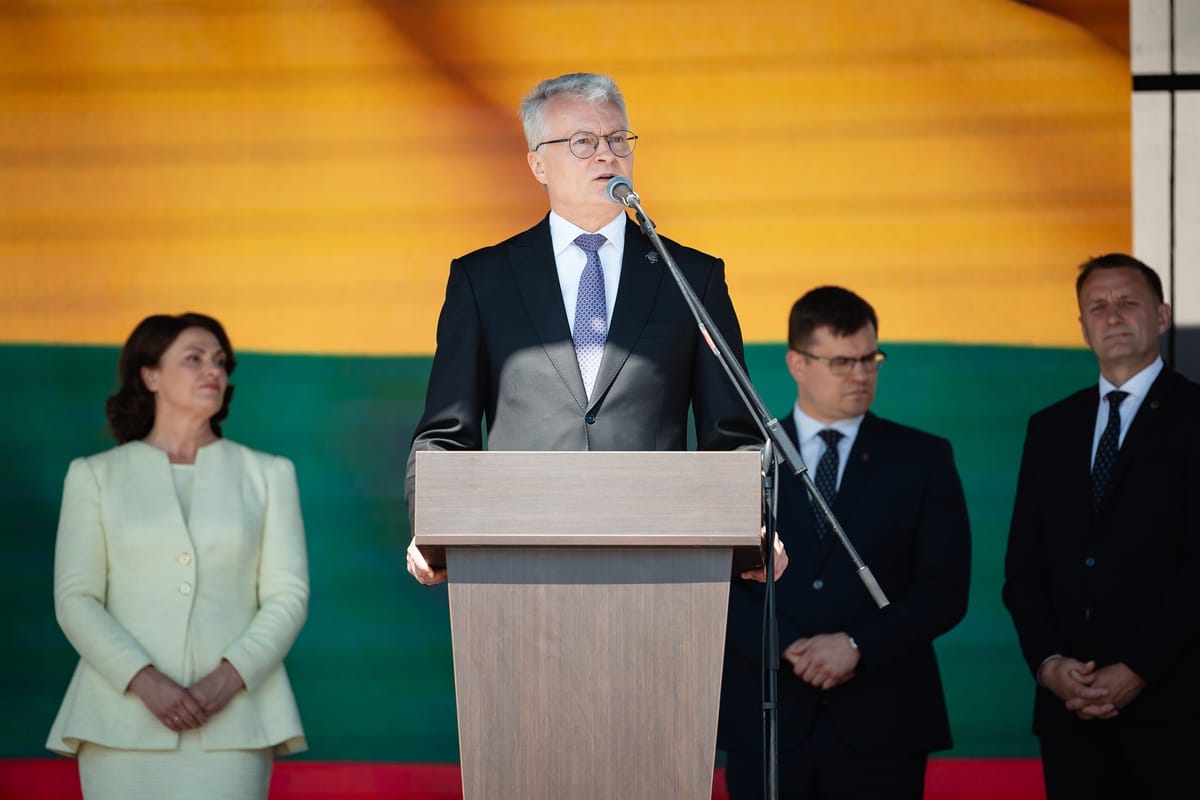
Re-election of Lithuania's President Nauseda signals continuity on Russia policies
Lithuania’s President Gitanas Nauseda secured re-election on Sunday 26 May, according to official results, in a vote heavily dominated by defence concerns regarding neighbouring Russia.
The electoral commission reported that Nauseda garnered 74.6% of the vote, with 90% of ballots counted following the polls’ closure on Sunday. His rival, Lithuanian Prime Minister Ingrida Simonyte, received 23.8% of the vote and offered her congratulations to Nauseda.
In Vilnius, Nauseda, 60, expressed gratitude to voters. He wrote on Facebook: “The trust shown to me by Lithuanian people is an evaluation of five years of work, which I put my whole heart into. He wasn’t easy. The term has been marked by challenges of the pandemic, illegal migration, and the terrible Russian war against Ukraine.
“I’ve always tried to look for solutions. I tried to achieve the goals of the welfare state, which I set before my first term in office, first of all, to reduce social and regional distinction. I will strive for our political parties to agree on the issues that are most important to Lithuania,” he added.
United on Russia, less so on China
The Lithuanian presidency holds significant power over defence and foreign policy, particularly regarding EU and NATO. The president, however, collaborates with the government and parliament on key appointments.
Both Nauseda and Simonyte agree on bolstering defence, in light of a renewed potential threat from Russia, but diverge on relations with China, which have been strained due to Lithuania’s closer recent relations to Taiwan. In 2021, Lithuania’s decision to allow Taiwan to open an embassy under its name led to a diplomatic fallout with China. Nauseda and Simonyte clashed on whether to adjust this stance.
Lithuania’s stance on increasing defence expenditure remains, and recent proposals for tax hikes support this aim. A staunch supporter of Ukraine in its conflict with Russia, Lithuania currently spends 2.75% of its GDP on defence. Plans include acquiring tanks, enhancing air defence systems, and hosting a German brigade, expected to be fully stationed by 2027.
The election also highlighted personal and policy differences between the candidates. Simonyte, popular among liberal urban voters, advocates for fiscal conservatism paired with progressive social policies, including support for same-sex partnerships. Nauseda, conversely, promotes a welfare state with conservative views on LGBTQ+ rights.
Georgia’s President Salome Zourabichvili, Latvia’s President Edgars Rinkevics, and Estonia’s President Alar Karis, extended their congratulations to Nauseda, expressing eagerness to continue collaborative efforts within the EU and NATO frameworks, and support Ukraine.
Earlier election on dual citizenship failed to meet 50% threshold
In a vote held in parallel with the first presidential round on 12 May, Lithuania’s referendum on dual citizenship again failed to pass, after falling short the 50% threshold required for validity. In the latest vote, 42.8% of eligible voters cast their ballots in favour of allowing dual citizenship, up from the 38.4% who supported it in the 2019 referendum on the same subject. Only 14.9% voted against the measure.
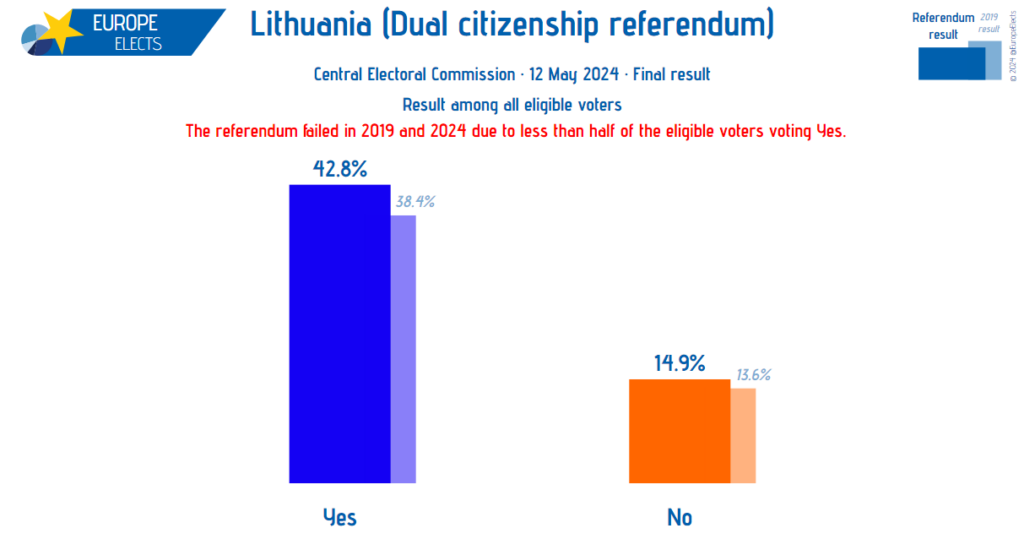
The push for dual citizenship has been a contentious issue in Lithuania, where many argue it is essential for maintaining ties with the global Lithuanian diaspora. The government expressed disappointment at the result but said it remains committed to finding a solution that addresses the diaspora’s concerns.

